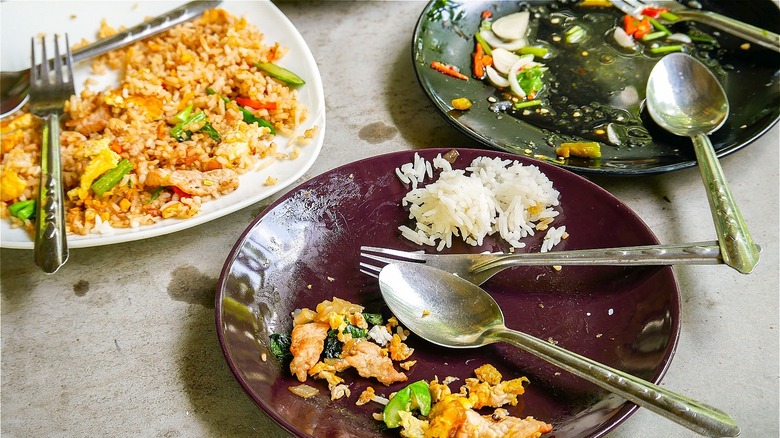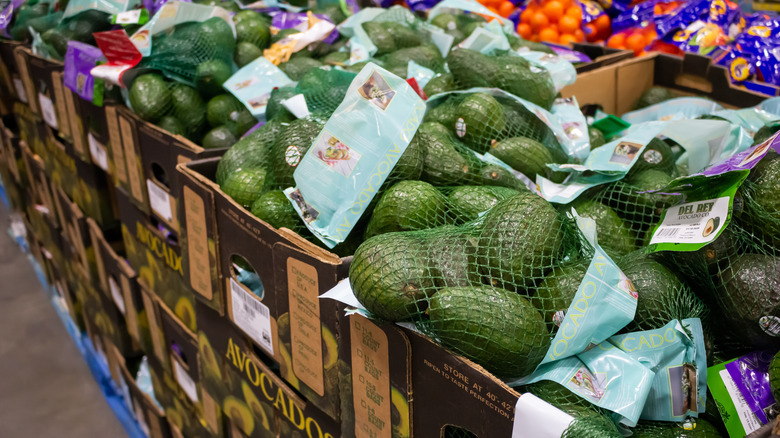Scientists May Have Found A New Way To Wrap Up Leftovers
As food costs continue to increase, it hurts to have to throw out expensive produce because it's gone bad. And yet, the USDA estimates that about a third of our food goes to waste, and a large portion of that consists of fruits and vegetables. Frankly, it's hard to believe how bad food waste is. If we consider the resources that go into producing that food, it quickly adds up to a general crisis. We can all take steps to improve the situation, but as the state of our environment and economy are already objects of concern, it's no surprise that many scientists are searching for new ways to extend the shelf life of produce while reducing waste.
The good news is that researchers have reported considerable success, as recently highlighted by The Washington Post and The Takeout. A team of scientists based at Harvard and Rutgers universities have developed a biodegradable food coating that can be sprayed on to produce and slows food spoilage considerably. Rutgers' Philip Demokritou and his colleagues released a statement on their work and explained that "[W]hat we have come up with is a scalable technology, which enables us to turn biopolymers, which can be derived as part of a circular economy from food waste, into smart fibers that can wrap food directly." The coating Demokritou and his team have invented can be sprayed onto a variety of products, extends shelf life by 50%, and is easily washed off.
Better alternatives to food waste and plastic wrap
But Philip Demokritu is not alone in his quest for "new generation, 'smart' and 'green' food packaging," per his statement. Another set of researchers, working for the start-up company Apeel, has been working in a similar vein. Apeel's founder and CEO, Frank Rogers, got his start as a materials science Ph.D. student at UC Santa Barbara and initially struggled to make retailers understand the added value of his product, but his work has subsequently gained considerable steam and attracted high-profile donors like Bill and Melinda Gates.
Apeel's technology works a bit differently: Their product is a plant-based sort of "second skin" for fruits and vegetables, which slows down plants' breathing (the rate at which they lose carbon dioxide and take in oxygen), avoiding spoilage. Apeel doubles the shelf life of produce, and their technology is being tested at major retailers, including on avocados at Costco.
As Rogers noted, not only does this technology limit food waste, it also provides access to fresh produce for people who were previously out of the distribution loop. Altogether, these efforts hold great promise for consumers, nutritionists, and ultimately, the planet itself.

